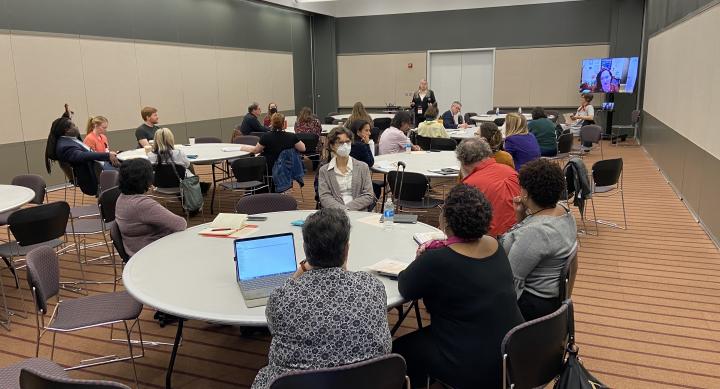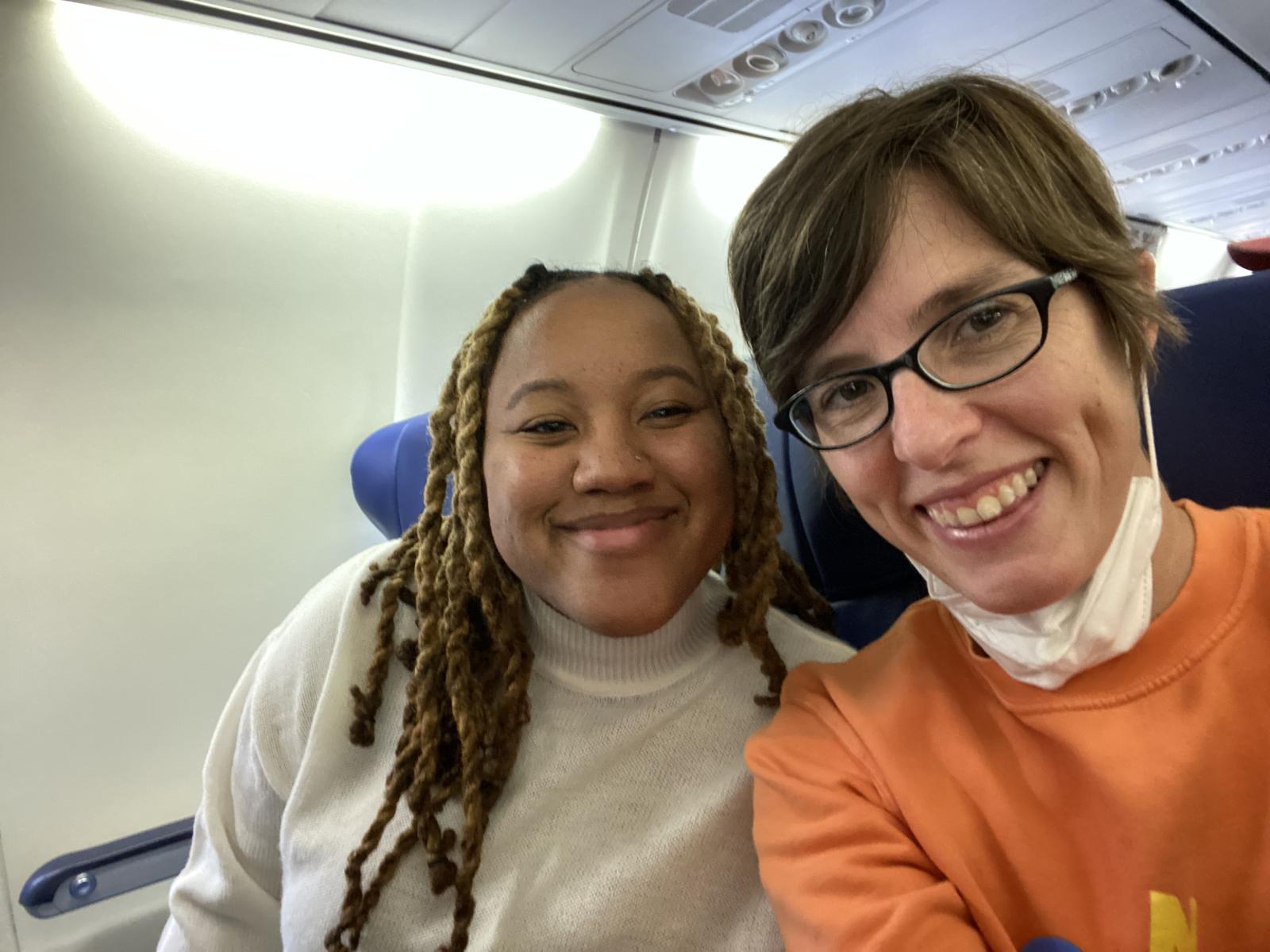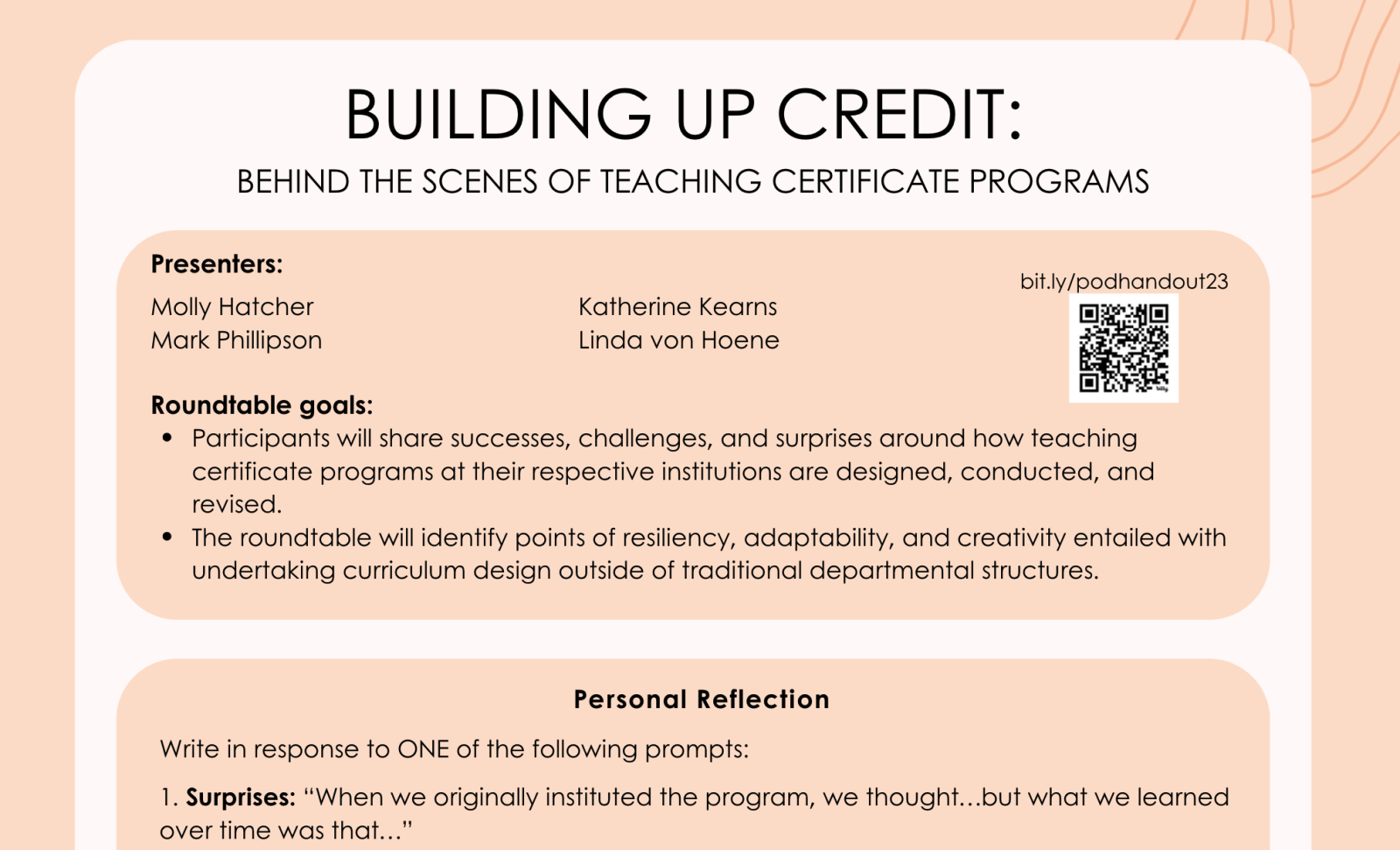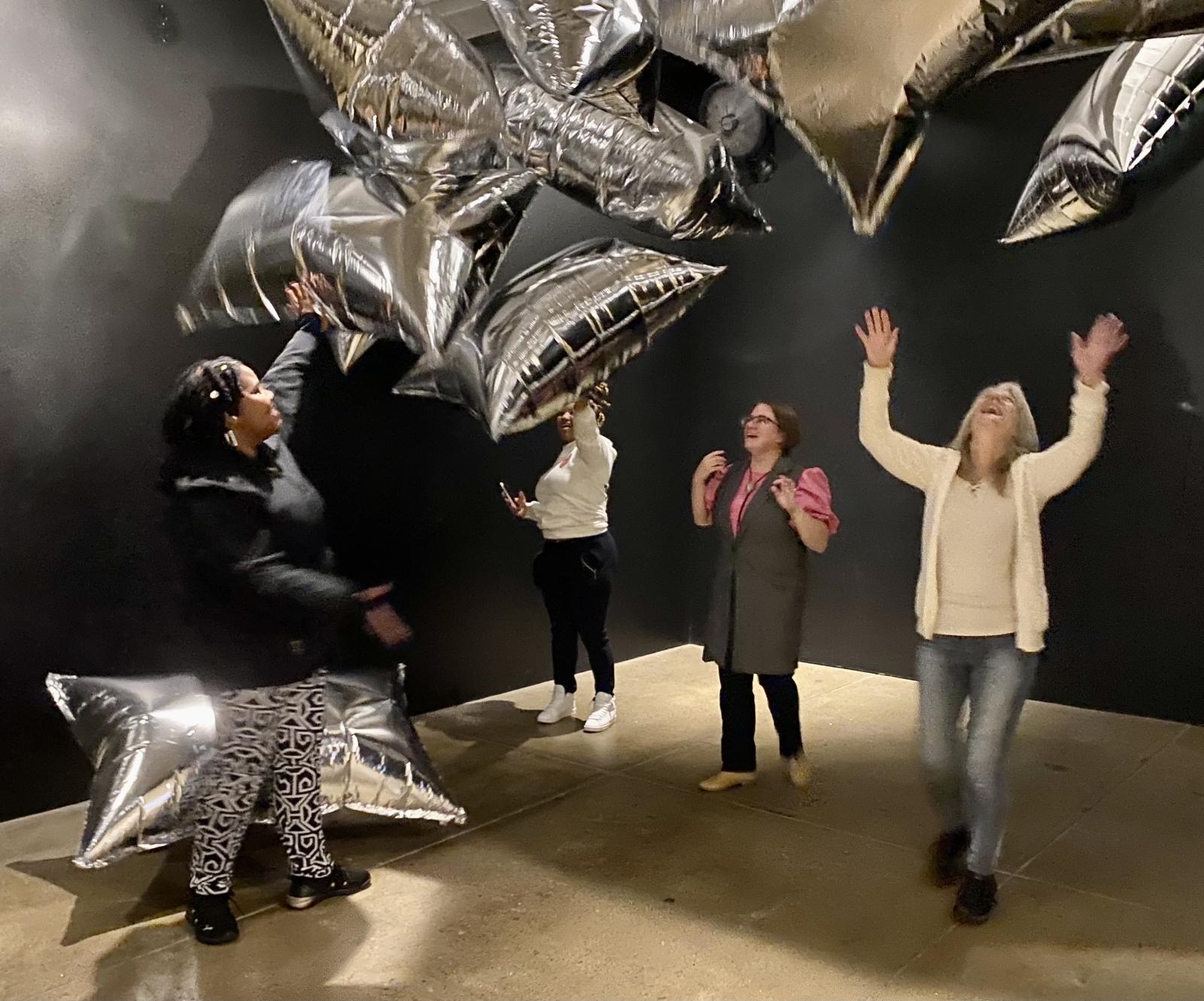
We want to welcome back our CTL faculty members who recently gathered at the 43rd annual POD Conference in Pittsburgh, where insights, strategies, and collaborative efforts were shared. The POD, or Professional and Organizational Development Network, Conference is an annual event that brings together educational development professionals and experts from across the globe. Several members of our staff attended the conference and participated in many of the sessions, workshops, and discussions on innovative pedagogical approaches.
Below are highlights of the unique experiences and valuable knowledge gained by our staff members at the conference.

Staff Highlights
Several of our staff were able to share their research and expertise during panel discussions and presentations, while others took advantage of what the POD conference had to offer.

Expanding on Teaching certificate programs
In a cross-institution collaborative effort, Molly Hatcher along with Mark Phillipson (Columbia University), Katherine Kearns (Indiana University), and Linda von Hoene (University of California, Berkeley), co-facilitated a roundtable discussion at the conference. The discussion focused on the participants' experiences designing, implementing, and revising teaching certificate programs at their respective institutions. Through an interactive discussion and handout, they encouraged conversations about the successes, challenges, and surprises encountered while navigating the complexities of curriculum design outside of traditional departmental structures. Participants identified points of resiliency, adaptability, and creativity as a group, providing a valuable forum for educators to share their experiences and strategies related to teaching certificate programs.
Insights on the Inclusive Course Design Institute
Michelle Gaston and Kaitlyn Farrell Rodriguez hosted an informational session about their Inclusive Course Design Institute. This program, running for the past three years, trains first-time graduate and postdoctoral instructors in designing their courses. With the approaching enactment of Senate Bill 17 (SB 17), they solicited feedback from attendees from various institutions to inform their future program development and
emphasized the importance of the institute in assisting instructors in creating vibrant and dynamic learning environments for students.
Arts-Based Strategies for Inclusive Classrooms
Kaitlyn had the opportunity to reconnect with our recently departed colleague Shavonne Coleman, as well as meet Christy Simonian Bean, to work on a collaborative effort between the University of Michigan (U Michigan) and our UT-CTL community to present arts-based strategies at the POD Conference.
Their roundtable focused on fostering conversations about belonging, growth, and combating systemic oppression in classrooms through the use of arts-based strategies. They discussed how incorporating visual arts, music, and drama can create a more inclusive and engaging learning environment for students of diverse backgrounds. The collaboration provided a unique perspective, drawing parallels between Shavonne's CTL initiatives, such as Came to Listen and Theatre of FAQs, and Christy continuing work at U Michigan. They emphasized the motivation derived from using theater and the arts as educational development tools, highlighting their collective commitment to enhancing belonging among students.
Expanding Horizons and empathic-based instruction
Anne Braseby, Sarah Schoonhoven, and Chazzi Hayes, members of our CTL community, were also able to gain new insights and participate in rich opportunities for collaboration and inspiration. Anne emphasized the importance of meeting educational developers from various universities, exchanging program insights, and fostering potential collaborations. Sarah and Chazzi, both first-time attendees, were able to channel this and found interactive sessions on topics like supporting neurodivergent students and storytelling in the classroom to be valuable knowledge-sharing experiences. Chazzi found the conference's topics on inclusiveness to really broaden her perspective; even a simple act of learning students’ names is an inclusive pedagogy, as is using storytelling as a tool in the classroom to transform learning experiences. Sarah emphasized the conference's impact on her programs and the broader CTL communities, specifically learning about support for new faculty and innovative pedagogies for neurodivergent instructors.
Sarah states:
“I learned so much about how other universities think about programs like teaching fellowships and first-year/early career faculty support, and gleaned some great insights about engaging instructors through playful pedagogies and designing spaces to meet the needs of educators with ADHD.”

Building connections beyond the conference
Not only was the conference an opportunity for our staff to learn and grow, but exploring Pittsburgh was a great way for them to connect and team-build. They were able to immerse themselves in Pittsburgh's vibrant arts and culture scene, visiting the Andy Warhol Museum and dining at local restaurants known for their excellent food.
Key Takeaways
The conference has evolved into an active center for collaborative learning and the exchange of cutting-edge educational ideas. First-time attendees left with an array of new ideas, particularly about teaching fellowships, faculty support, and innovative pedagogies. Attendees gained valuable experience by connecting with peers from various institutions, broadening their perspectives, and exploring potential collaborations. People from various backgrounds were able to contribute to new knowledge exchanges thanks to the welcoming environment at POD. The conference provided a vibrant setting for inspiration, networking, and gaining valuable insights into the complex landscape of higher education teaching and learning.

